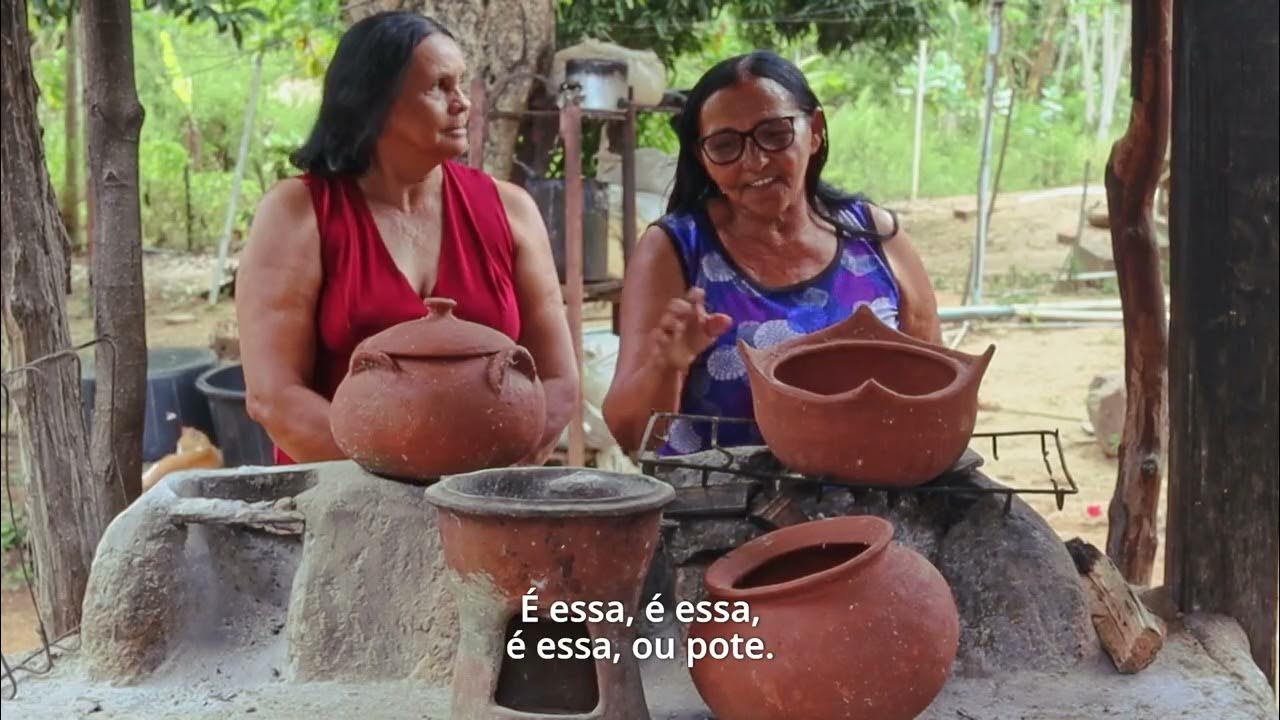Clive Bowen 'Born, not made' - film about British slipware potter
Summary
TLDRThis transcript chronicles the journey of a potter deeply immersed in the tradition of functional pottery. Emphasizing the intersection of craft and utility, the potter reflects on the joy of creating practical, yet beautiful, pieces for everyday use. With influences from key figures like Michael Leach and Michael Cardew, their work blends English slipware with Japanese traditions. The narrative touches on the potter’s process, from sourcing local materials to the challenges of kiln firing, and explores the therapeutic and intuitive nature of pottery-making. The potter also shares their experiences of teaching and traveling, particularly to Japan, where slipware has seen a resurgence.
Takeaways
- 😀 The speaker emphasizes the importance of creating functional pottery for daily life, especially in the kitchen and for serving food, highlighting the joy of presenting meals in beautiful, usable pots.
- 😀 A significant influence on the speaker's work was their experience with Michael Cardew and the traditional English slipware, contrasting with their initial training which was influenced by Japanese and Chinese pottery styles.
- 😀 The speaker values the tradition of pottery in North Devon, where the local clay and slip techniques have been in practice since the 17th century, and they continue this tradition by sourcing and using local materials.
- 😀 The process of collecting and working with local clay is deeply ingrained in the speaker's practice. They use materials like the ochre-colored clay from the stream and mix it with other clays to create unique textures.
- 😀 The speaker describes how the small kiln they built in their early 20s led to a shift toward creating larger pots, requiring a team to assist with firing. This community involvement remains an important part of their work.
- 😀 Despite the challenges faced during early pottery firing, including their first kiln firing where half the kiln melted, the speaker reflects fondly on the support they received, including the gallery that first accepted their pots.
- 😀 Pottery, especially the firing process, has been a therapeutic and meditative practice for the speaker, and they appreciate the tactile engagement with the material and the artistic process of shaping the pots.
- 😀 The speaker values craftsmanship over ego, choosing not to sign their work because they believe that great pots are often made by unknown potters, emphasizing the functional nature of their creations.
- 😀 The speaker enjoys the process of decorating their pots, often using slip trailing and other techniques, but acknowledges the challenge of knowing when to stop and avoid over-decorating, which can detract from the work.
- 😀 Over the years, the speaker has embraced international opportunities to showcase their work, including demonstrations in Japan, where there has been a resurgence of interest in slipware pottery, showing the global impact of their craft.
- 😀 The speaker reflects on the progression of their career from ambitious youth to seasoned artist in their 70s, noting how their work has become more intuitive and automatic over the decades, driven by instinct rather than overthinking.
Q & A
What is the speaker's main approach to pottery?
-The speaker values creating functional pottery that is both beautiful and useful. He emphasizes the importance of serving food and drink in beautiful yet practical vessels, making functionality a key aspect of his work.
How does the speaker view the relationship between art and function in pottery?
-The speaker believes that art and function are inseparable in pottery. He sees no distinction between the two, asserting that pottery should be both functional and visually appealing, blending aesthetic value with practical use.
Why does the speaker not sign his pots?
-The speaker chose not to sign his pots after reading 'The Unknown Craftsman,' which taught him that the best pots were made by people whose identities were not important. He believes that the work itself should speak for the maker, without the need for personal ego or recognition.
What is the significance of North Devon in the speaker's pottery?
-North Devon plays a crucial role in the speaker's pottery journey. The region's tradition of pottery, dating back to the 17th century, provided a foundation for his work. The availability of local clay and slips allowed him to create unique pottery, rooted in the area's rich history.
What influences from Japan are present in the speaker's work?
-The speaker was trained with Michael Leach, who focused on Japanese pottery techniques, particularly the use of brushes for decoration. This Eastern influence played a role in shaping his approach to pottery, although he later incorporated more English styles, especially after meeting Michael Cardew.
How did the speaker's early experiences with pottery shape his career?
-The speaker's apprenticeship with Michael Leach and his exposure to renowned potters like Michael Cardew influenced his development. These early experiences taught him the technical aspects of studio pottery, as well as how to merge traditional methods with personal expression.
What role does decoration play in the speaker's pottery?
-Decoration is an essential part of the speaker's pottery process. He enjoys using techniques like slip trailing and scratching, but he also acknowledges the importance of restraint—knowing when to stop decorating to avoid overworking the piece.
How does the speaker approach firing his pottery?
-The speaker fires his pottery using a large kiln that takes up to 30 hours to fire. He needs a team of helpers to manage the process. The firing is a significant part of his pottery practice, and he enjoys the collaborative aspect of the work.
What is the speaker's favorite type of pottery to create, and why?
-The speaker’s favorite pieces to create are jugs and storage jars. He finds the jug particularly challenging because it must balance both form and function, needing to be lightweight yet sturdy enough to hold liquid comfortably.
What is the speaker's view on tradition in pottery?
-The speaker believes tradition is vital in pottery, but he does not see it as something restrictive. He argues that one must understand and appreciate the past to innovate meaningfully. Pottery, like music or art, is enriched by knowledge of earlier works and techniques.
Outlines

Dieser Bereich ist nur für Premium-Benutzer verfügbar. Bitte führen Sie ein Upgrade durch, um auf diesen Abschnitt zuzugreifen.
Upgrade durchführenMindmap

Dieser Bereich ist nur für Premium-Benutzer verfügbar. Bitte führen Sie ein Upgrade durch, um auf diesen Abschnitt zuzugreifen.
Upgrade durchführenKeywords

Dieser Bereich ist nur für Premium-Benutzer verfügbar. Bitte führen Sie ein Upgrade durch, um auf diesen Abschnitt zuzugreifen.
Upgrade durchführenHighlights

Dieser Bereich ist nur für Premium-Benutzer verfügbar. Bitte führen Sie ein Upgrade durch, um auf diesen Abschnitt zuzugreifen.
Upgrade durchführenTranscripts

Dieser Bereich ist nur für Premium-Benutzer verfügbar. Bitte führen Sie ein Upgrade durch, um auf diesen Abschnitt zuzugreifen.
Upgrade durchführenWeitere ähnliche Videos ansehen

BARRO VIVO - Artesãos da Cultura Baiana

Candramawa

Donas da Terra

The Boy Who Lived: Surviving Harry Potter | David Holmes | TEDxSoho

Ayatullah Bahjat Documentary | The Life of Ayatollah Bahjat | New Olama Series - Episode 3

The Adventure Class 11 | Full (हिन्दी में) Explained | Hornbill Book | Adventure class 11
5.0 / 5 (0 votes)
